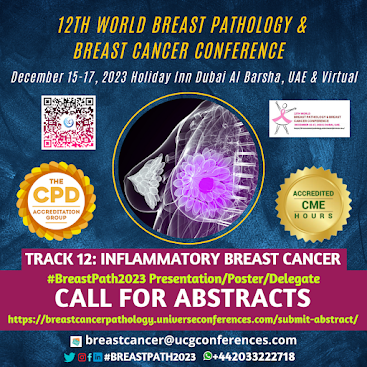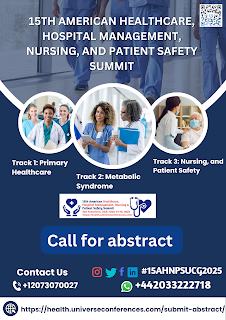Certainly, here's a detailed discussion of breast cancer risk factors
Breast Cancer Risk Factors: Understanding What Puts You at Risk
Breast cancer is a complex disease influenced by a variety of factors.
While anyone can develop breast cancer, certain risk factors can increase the
likelihood of its occurrence. Understanding these factors can empower
individuals to take proactive steps toward prevention and early detection.
Age: The risk of breast cancer increases
with age. Statistically, the majority of breast cancer cases occur in women
over the age of 50. However, it's important to note that younger individuals
can also be affected.
Family History: Having close relatives
(especially first-degree relatives like a mother, sister, or daughter) who have
had breast cancer increases your risk. The risk is higher if multiple family members are affected or if the
cancer occurs at a young age.
Genetic Mutations (BRCA1/BRCA2): Inheriting mutations in genes such as
BRCA1 or BRCA2 significantly elevates the risk. These genes are responsible for
suppressing tumors, and when mutated, they can lead to a higher likelihood of
breast and ovarian cancers.
Oestrogen Exposure: Prolonged exposure to estrogen,
whether through early onset of menstruation, late menopause, or hormone
replacement therapy, can increase risk.
Pregnancy History: Women who have never been pregnant or had their first
pregnancy after the age of 30 have a slightly higher risk.
Age at First Pregnancy: Delaying pregnancy
until after the age of 30 can slightly increase risk.
Never Having Been Pregnant: Women who have
never been pregnant have a slightly higher risk.
Breast Density: Women with dense breast
tissue have a higher risk. Dense breasts have more glandular and fibrous tissue
and less fatty tissue.
Previous Breast Cancer or Non-Cancerous Breast
Diseases: A history of breast cancer or certain
non-cancerous breast diseases like atypical hyperplasia can increase risk.
Radiation Exposure: Prior radiation
treatment to the chest, particularly during childhood or
adolescence, can elevate risk.
Lifestyle Choices:
Alcohol Consumption: Regular and excessive alcohol consumption is
associated with an increased risk of breast cancer.
Smoking: While primarily associated with lung cancer, smoking can also
marginally increase breast cancer risk.
Sedentary Lifestyle and Obesity: Lack of physical activity and being
overweight or obese, especially after menopause, can raise risk.
Hormone Replacement Therapy (HRT):
Long-term use of combined hormone https://breastcancerpathology.universeconferences.com/registration/replacement
therapy (estrogenic and progesterone) after
menopause can increase risk.
Environmental Factors: While not as well understood, certain environmental
factors, such as exposure to chemicals or pollutants, may play a role in
increasing breast cancer risk.
It's important to note that having one or more of these risk factors
doesn't guarantee the development of breast cancer, and individuals without
obvious risk factors can still be affected. Regular screenings, a healthy https://breastcancerpathology.universeconferences.com/registration/lifestyle,
and awareness of one's own body are crucial components of breast cancer
prevention and early detection.
Consulting with a healthcare provider and discussing personal risk factors can help
in developing a tailored approach to breast health and
screening.
Thank you….
Welcome to the CME/CPD accredited 12th World Breast Pathology &
Breast Cancer Conference on At December 15-17, 2023 in Dubai, UAE.
This event will be hosted virtually/online. Please register to get access to
the entire program closer to the date. If you have any questions or doubts
related to the abstract, registration, registration fee, or conference details,
then definitely let us know.
Contact Us:-
Email us: breastcancer@ucgconferences.com
Visit Homepage: https://breastcancerpathology.universeconferences.com/
Call for Papers: https://breastcancerpathology.universeconferences.com/submit-abstract/
Register here: https://breastcancerpathology.universeconferences.com/registration/
Call Us/WhatsApp Us: +12076890407/+442033222718
You can see the Link: https://youtu.be/xdf1lD4-V_k
Previous Blog Post Links:-
https://www.xing.com/discover/detail-activities/6728099283.2ac431
https://qr.ae/prjdY0
https://sites.google.com/view/12breastpath-/home
https://sites.google.com/view/csont-slgyszvet-patolgiarvidde/home
https://www.blogger.com/blog/post/edit/7151158548968050254/5802440274225566974
https://www.linkedin.com/pulse/breast-cancer-most-prevalent-form-pathology-involves-growth-pujhari
https://kikoxp.com/posts/23363
https://medium.com/@Andreaross01/wat-is-borstkankermanagement-93bcf2e1e2e9
https://www.blogger.com/blog/post/edit/7151158548968050254/7604710248257541176
https://www.linkedin.com/pulse/breast-cancer-most-prevalent-form-pathology-involves-growth-pujhari

.png)


Comments
Post a Comment